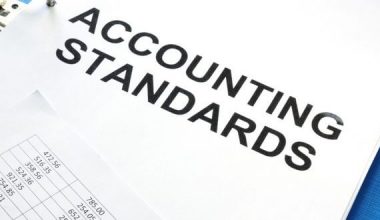Many individuals think business accounting is difficult, including difficult to learn, difficult to become an expert in, and difficult to pursue as a vocation. All of these ideas are not necessarily true, though. Although being a business accountant requires a complex set of skills and abilities as well as outstanding attention to detail, similarly, it is not significantly more difficult than many other popular academic fields that offer excellent opportunities for long-lasting jobs.
It all depends on the activities you excel at and find enjoyable. Accounting could be less complicated than other options for certain people. In order to assuage any concerns you may have about accounting, consequently, this article will cover why many people find it tough, what it takes for business accountants to thrive in the field, and why you should consider entering it.
Business Accountant
An accountant for businesses looks over the books and creates financial statements. It is their responsibility to ensure that your data is accurate and that your taxes are paid accurately and on time. Some people might even offer bookkeeping services. An accountant carry out the financial task of the collection, accuracy, recording, analysis, and presentation of a business, organization, or company’s financial operations. An accountant’s duties in a smaller company can essentially involve gathering, entering, and producing financial reports. An accountant can serve as a financial advisor and interpreter for medium-sized to big businesses, presenting financial information to both internal and external audiences. In most cases, the accountant can also communicate with outside parties including suppliers, clients, and investment firms.
The systematic collection, examination, interpretation, and presentation of financial data constitute business accounting. In small businesses, one individual may handle accounting; in large enterprises, various teams may handle accounting.
A firm keeps track of its operations through accounting. Accountants review the financials of the company so the owner can make wiser choices. Information is created to illustrate a company’s financial health in reports contained. Accounting enables business owners to fulfill their regulatory requirements. Also, it aids individuals in making wise financial decisions.
Roles of an Accountant
1. Handling financial data
2. Prepare financial reports
3. Counseling and assessment
4. Maintenance of cash flow at requirement levels
5. Create your tax returns accurately and promptly.
6. Determine prospective growth areas by examining pricing, cash flow patterns, and inventory control.
7. Outside Business Connections
#1. Handling Financial Statistics
An integral part of a company’s operations is its accounting structure. The gathering and upkeep of financial data related to a company or firm are typically one of an accountant’s core responsibilities. The accountant is responsible for ensuring that financial records are maintained in accordance with legal and acceptable procedures and standards on a corporate level.
#2. Prepares Financial Reports
Based on the gathered and examined financial data, accountants normally generate financial statements, which may include monthly and annual accounts. The creation of correct 12-month closing paperwork and periodical financial management reports is possible.
#3. Counseling and Assessment
Accounting professionals may conduct specific analyses using financial data that is utilized to help with business choices. The accountant manages numerous complex financial issues on a regular schedule, including choosing which supplies to source, processing payments, and processing payroll. Issues including income and expenditure trends, financial commitments, and anticipated future revenue can all be covered in business operations advice.
Read Also: How Virtual CFO Services Are Great for Your Business
Small Business Accountant
Accounting is the process by which a company collects, categorizes, and analyzes its financial data. It covers elements like transactions, taxes, budgets, and projections and offers a comprehensive picture of an organization’s financial health.
Small business accounting typically pays close attention to even the tiniest details because, for the majority of small firms, moreover, every dollar matters and needs to be recorded. To make sure that your small business not only survives but also grows successfully, tracking the money that comes in and goes out is a crucial component.
Small business accountants are experts with the experience and understanding to guide owners through their financial records. They are frequently Certified Public Accountants (CPAs). These accountants could work on a monthly, quarterly, or annual basis, depending on the size and requirements of the company. Small businesses frequently enter into agreements with accounting firms or individual accountants who provide the services they require, unlike larger organizations that frequently employ accountants.
Accountants for Small Businesses Handle
To manage daily business accounts, you might already be utilizing a bookkeeper or bookkeeping software. By hiring a small company accountant, you are collaborating with someone who will examine all those figures, determine what they mean, and provide you with crucial information.
Jobs handled by small business accountants include:
1. Preparing, submitting, and amending tax returns
2. Creating financial statements, including financial statements, cash flow income statements, and income statements
3. Upkeep and administration of accounts
4. Aid in preserving a regular cash flow
5. Payroll and accounting for capital expenditures
6. Estimating financial data
7. Financial analysis and guidance, with emphasis on possible development areas
Small Business Accounting Services
A third-party company offering accounting services will examine your books and offer insights to help your team make financial decisions. The aid of a financial counselor or other professional is part of this service, unlike accounting software.
Small business owners typically have a lot on their plates. It can feel overwhelming when accounting is added in because it is a daily chore that is really necessary. Accounting isn’t always a pleasurable task if you’re not great with numbers. And, to be really honest, it can distract from tasks that a business owner should be performing that are far more crucial.
Many accounting services, ranging from routine transactional bookkeeping to more intricate, strategic CFO duties, are available for outsourcing by small organizations. Also, outsourcing enables you to obtain a larger range of expertise to help the business as opposed to recruiting.
Accounting Services for Small Businesses
Popular outsourced accounting services are listed below for small businesses to take into account.
#1. Book-keeping
The most fundamental accounting task is bookkeeping, which entails preserving and recording all of a company’s financial records, including income and expenses. A bookkeeper with basic financial knowledge frequently handles bookkeeping. Even though bookkeeping is the most fundamental accounting service, it also lays the groundwork for reliable data. The accuracy of your bookkeeping will have an impact on all subsequent financial reports and projections. When selecting a bookkeeper because good qualities are needed and you need to be cautious.
#2. Keeping an eye on employee perks and payroll services
Accountants use the data a bookkeeper supplies together with their knowledge to assist in creating budgets, reports, and analyses needed to make wise business decisions. A good outsourced accountant will organize monthly financial review meetings to discuss operating outcomes, explain budget deviations, and look for methods to increase efficiency and profitability in addition to reconciling your accounts and preparing reports.
#3. Calculates Cash flow
Every company should plan for its financial flow. It’s the only way to confidently plan for the future and make decisions. An outsourced accounting provider can assist business owners in avoiding unexpected payments or changes in income that could be disastrous by deliberately examining a company’s financial inflows and outflows. Additionally, they can make use of cutting-edge technologies to give business owners a solid understanding of anticipated cash flow. Over time, cash flow forecasting assists business leaders in making wiser decisions and responding to a dynamic business environment.
#4. Maintain a General Ledger of Transactions
Periodical accounting supersedes bookkeeping. It entails closing the regular books and giving information regarding the company’s current financial situation. Although bookkeepers assist business owners in organizing and recording transactions, they rarely interpret the outcomes. An accountant or controller can help with this.
#5. Generate financial reports to aid in decision-making in the future
There is more to it than merely performing calculations. More deliberate, strategic, and requiring in-depth business expert services can also be outsourced. Chief Financial Officer (CFO) services that are outsourced are exactly that. Businesses that are succeeding, expanding quickly, overcoming a hurdle, or in need of project-based expertise might consider hiring an outsourced CFO. A part-time or project-based outsourced CFO is a financial advisor and strategic consultant who offers services to a firm.
Business Accountant Degree
It requires commitment and effort to succeed as an accountant. In order to help you decide whether or not it makes sense for you to enroll in an online accounting degree or Certificate program, we incorporated real-time job analysis data, government data, and first-hand experience from seasoned accountants. Accountants can embark on a rewarding career in business and finance with an accounting degree. Accountants work for large and small enterprises as well as for profit and governmental organizations. They produce financial reports, examine revenue and expenditures, make tax preparations, and guarantee regulatory compliance. Even some accountants assist in finding financial offenders. Others participate in risky investments. Depending on the specific function, nevertheless, an accounting professional can either be secure and predictable or thrilling and dynamic.
Your career and personal aspirations must be taken into account before choosing the best accounting degree program. Similar to other college degrees, accounting programs cover a wide range of subjects, and each university touts its own specialties and characteristics.
Choosing whether to pursue an associate’s or bachelor’s degree is the first step. A two-year degree that opens up entry-level positions in the industry is an associate’s degree in accounting. For instance, some bookkeeping positions require only an associate’s degree. Work in payroll, as an accountant’s assistant, or as an administrative assistant are other options. Individuals with a four-year baccalaureate will have a far wider range of alternatives. For instance, accounting graduates with a bachelor’s degree can work in forensic accounting, or even tax assessment,
Some degree programs include:
1. Bachelor of Science in Business Administration – Accounting
2. Bachelor of Business Administration in Accounting
3. Accounting, B.S.
4. Business Accounting Program
5. Accounting, BSBA
Business Accountant Salary
In the United States, a business accountant’s annual total compensation is expected to be $92,008, with an average salary of $71,623. These figures show the median, or the midpoint of the ranges, from our unique Total Pay Estimate methodology, which is based on data about wages gathered from our users. The extra compensation is anticipated to be worth $20,385 annually. Cash bonuses, commissions, tips, and profit sharing are all possible forms of additional compensation.
According to recent job posts on ZipRecruiter, Dallas, Texas, and the surrounding area have a very active job market for small business accountants. Your local average yearly pay for a Small Business Accountant is $54,447, which is $729 (1%) less than the $55,176 nationwide average. Texas is ranked 48th out of 50 states for the highest pay for small business accountants.
What Is a Business Accountant?
Accountants review the financials of the company so the owner can make wiser choices. Reports containing this information are created to illustrate a company’s financial health. Accounting enables business owners to fulfill their regulatory requirements.
What Should a Small Business Accountant Do?
Small business accountants are experts with the experience and understanding to guide owners through their financial records. They are frequently Certified Public Accountants (CPAs). These accountants could work on a monthly, quarterly, or annual basis, depending on the size and requirements of the company. Small businesses frequently enter into agreements with accounting firms or individual accountants who provide the services they require, unlike larger organizations that frequently employ accountants.
What Are the 4 Types of Accountants?
The four types of accountants include:
- Corporate
- Public
- Government and
- Forensic Accounting
How Do I Choose a Business Accountant?
You must first decide which tasks an accountant will help you with and how frequently you will need their assistance. Make a list of your top priorities that require immediate attention and those that must be resolved over the next six months. The next decision is whether you want to hire a freelance accountant or a big accounting business. Whoever you choose, be sure the person you choose is someone with whom you feel comfortable sharing sensitive information and who has a lot of experience working with the kind of business you have.
What Are the 5 Roles of Accountants?
Accountants often record, examine, collect, analyze, and present financial data. Bookkeepers’ financial records are used by accountants to create financial statements and reports and conduct financial analyses most of the time.
Is Business Accountant Hard?
Many people believe that business accounting is challenging, including challenging to learn, challenging to become an expert in, and challenging to pursue as a profession. However, not all of these claims are necessarily accurate. Business accounting involves a complicated combination of talents and abilities as well as exceptional attention to detail, but it is not noticeably more challenging than many other well-liked academic subjects that provide excellent chances for long-term employment.
Bottom Line
An accounting foundation is necessary for small business operations. On the other side, using professional accounting services can decrease errors, boost productivity, and help small business owners make wiser decisions and investments. Small businesses need accounting services to create accurate financial records, offer qualified tax advice, and assure compliance with federal and state tax laws, and other business rules.
Related Articles
- Senior Accountant: Overview, Salary, Job Description, and Jobs
- BUSINESS ACCOUNTANT: Roles, Education, and Salaries In 2022
- Read Also: HOW TO START A FOOD TRUCK BUSINESS: Easy Guides to Take






